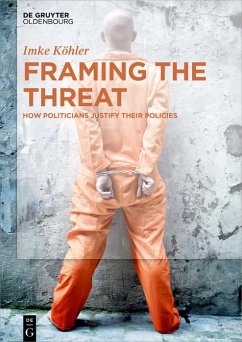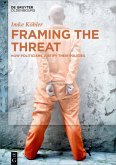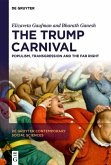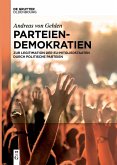There is great power in the use of words: words create most of what we consider to be real and true. Framing our words and narratives is thus a tool of power - but a power that also comes with limitations.
This intriguing issue is the topic of Framing the Threat, an investigation of the relationship between language and security and of how discourse creates the scope of possibility for political action.
In particular, the book scrutinizes and compares the security narratives of the former US presidents George W. Bush and Barack Obama. It shows how their framings of identity, i.e., of the American 'self' and the enemy 'other' facilitated a certain construction of threat that shaped the presidents' detention and interrogation policies. By defining what was necessary in the name of national security, Bush's narrative justified the operation of the detention center at Guantanamo Bay and rendered the mistreatment of detainees possible - a situation that would have otherwise been illegal. Bush's framings therefore enabled legal limits to be pushed and made the violation of rules appear legitimate. Obama, in contrast, constructed a threat scenario that required an end to rule violations, and the closure of Guantanamo for security reasons. According to this narrative, a return to the rule of law was imperative if the American people were to be kept safe. However, Obama's framing was continually challenged, and it was never able to dominate public discourse. Consequently, Framing the Threat argues Obama was unable to implement the policy changes he had announced.
This intriguing issue is the topic of Framing the Threat, an investigation of the relationship between language and security and of how discourse creates the scope of possibility for political action.
In particular, the book scrutinizes and compares the security narratives of the former US presidents George W. Bush and Barack Obama. It shows how their framings of identity, i.e., of the American 'self' and the enemy 'other' facilitated a certain construction of threat that shaped the presidents' detention and interrogation policies. By defining what was necessary in the name of national security, Bush's narrative justified the operation of the detention center at Guantanamo Bay and rendered the mistreatment of detainees possible - a situation that would have otherwise been illegal. Bush's framings therefore enabled legal limits to be pushed and made the violation of rules appear legitimate. Obama, in contrast, constructed a threat scenario that required an end to rule violations, and the closure of Guantanamo for security reasons. According to this narrative, a return to the rule of law was imperative if the American people were to be kept safe. However, Obama's framing was continually challenged, and it was never able to dominate public discourse. Consequently, Framing the Threat argues Obama was unable to implement the policy changes he had announced.
Dieser Download kann aus rechtlichen Gründen nur mit Rechnungsadresse in A, B, BG, CY, CZ, D, DK, EW, E, FIN, F, GR, HR, H, IRL, I, LT, L, LR, M, NL, PL, P, R, S, SLO, SK ausgeliefert werden.









